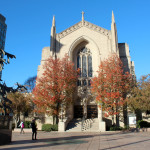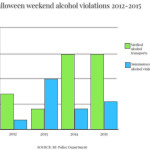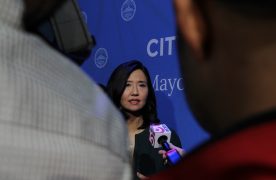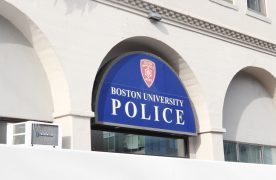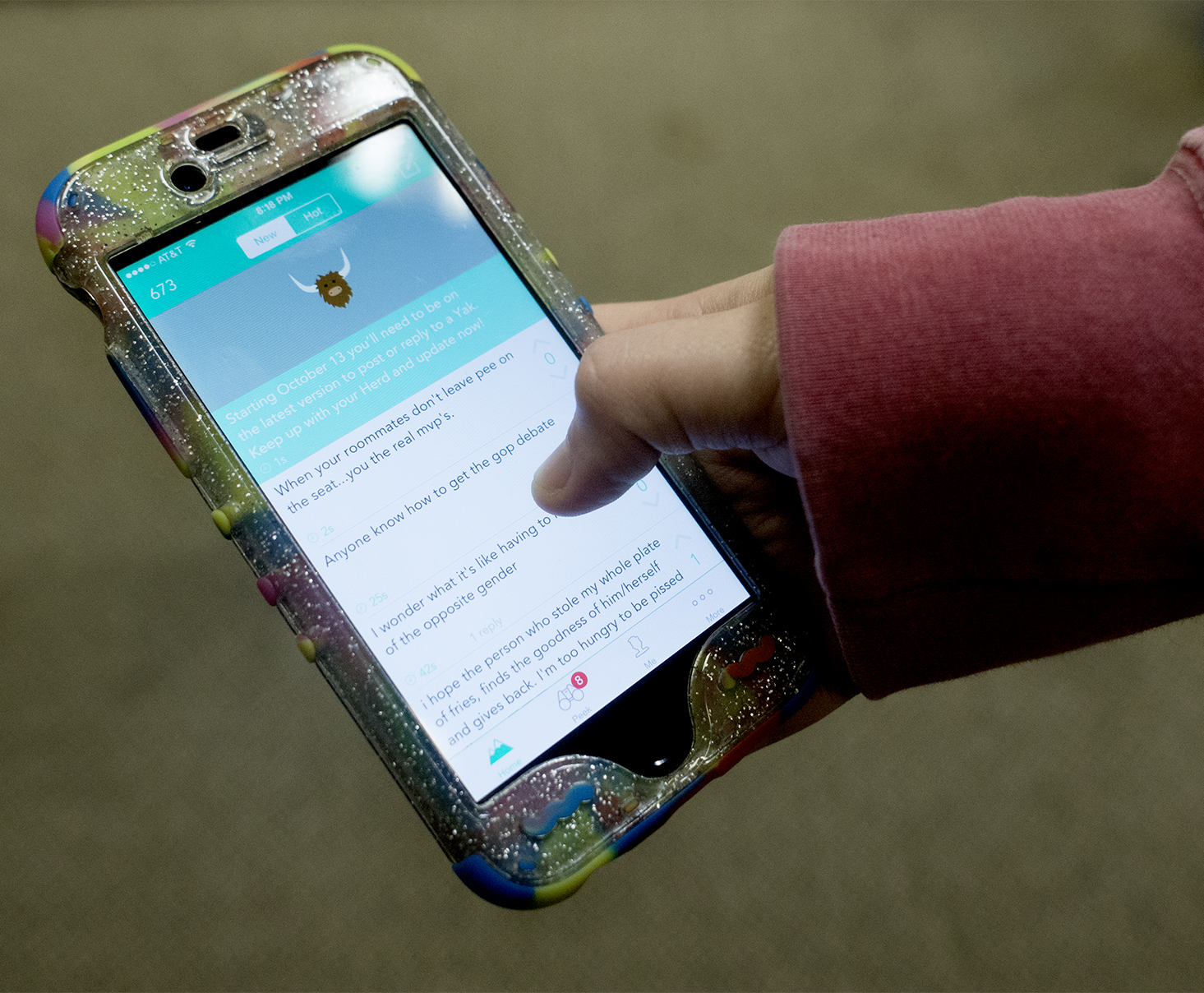 Title IX and Title VI of the Civil Rights Act of 1964 are meant to protect students from discriminatory environments that can be created on college campuses. While these structures generally exist institutionally, many students and organizations believe anonymous social media platforms like Yik Yak can be just as hostile.
Title IX and Title VI of the Civil Rights Act of 1964 are meant to protect students from discriminatory environments that can be created on college campuses. While these structures generally exist institutionally, many students and organizations believe anonymous social media platforms like Yik Yak can be just as hostile.
In one incident, several women were threatened with rape and violence over Yik Yak while attending the University of Mary Washington in Virginia. UMW is now under investigation by the Department of Education’s Office for Civil Rights for choosing not to pursue the offenders.
To combat future harassment and discrimination, though, 72 groups dedicated to gender equality and civil rights went so far as to send a letter to the U.S. Department of Education on Oct. 20 calling for guidance to be provided for schools on how to handle problems of online anonymous bullying.
“Guarding against misuse is something we take incredibly seriously. We have a number of safeguards in place, and we’re constantly working to enhance our protective measures,” said Yik Yak spokesperson Olivia Boger in an email. “We work hard to encourage a positive and supportive community environment on Yik Yak, and we support school administrators in their efforts to encourage positive behavior and discourage inappropriate activity.”
Gaylynn Burroughs, the director of policy and research at the Feminist Majority Foundation, said schools should take these threats seriously because they are just as real as threats made in person.
“These things have an impact on people’s lives and their ability to enjoy the educational opportunities that are presented to them based on their sex or their gender or their race,” she said. “They should be investigating all reports of harassment or threats. They should initiate campus disciplinary hearings against people they suspect of engaging in these types of harassment, and then if the problem is so severe, they should think about monitoring these applications.”
Melissa Holt, a professor of counseling psychology in Boston University’s School of Education who has studied bullying and behavioral science, said that bullying can lead to distress, loneliness and suicidal ideation for the victims.
“There are a number of factors that contribute to online bullying and harassment,” she wrote in an email. “With increases in technology, youth now have access to additional modalities through which they can bully or harass others. Traditional bullying — that is, bullying that occurs in person — is still more common than online/cyber bullying.”
According to the Pew Research Center’s survey on Online Harassment from October 2014, seven in 10 respondents aged 18-24 had experienced some sort of online harassment. This age group is the more likely than any other age group to have experienced harassment while online, according to the survey.
Several BU students said they have witnessed anonymous cyber bullying inside the BU community.
Courtney Singer-Coseglia, a sophomore in the College of Arts and Sciences, said she thinks online anonymous bullying is a big issue at BU on multiple platforms.
“I think that [online anonymous bullying] is a big issue … especially with BU Confessions too along with Yik Yak,” she said. “Every time I go on Yik Yak I feel like a lot of the posts are super hateful and are just really aggressive towards individuals, which I don’t think should be allowed. There is a Facebook page called BU Confessions and you can go on there and like basically submit something anonymously … and then they post it.”
Nikita Limaye, a freshman in CAS, said she has witnessed cyber bullying on platforms like the Chemistry Facebook page for students and she thinks the school should get involved.
“I don’t know how they would [get involved], but I think they should,” she said. “I feel like if there were more regulations then people would not do it as much because they would know they would get in trouble I guess, so just like have people watch out for it more.”
Michael Giordano, a senior in CAS, said the school should get involved, but it is hard for schools to decide what to address.
“I just think it is a fine line between what is bullying and what is just social media online,” he said. “Because I know my high school used to get involved in all the stuff like that and it was just kind of too far, but I don’t think BU really does anything.”

